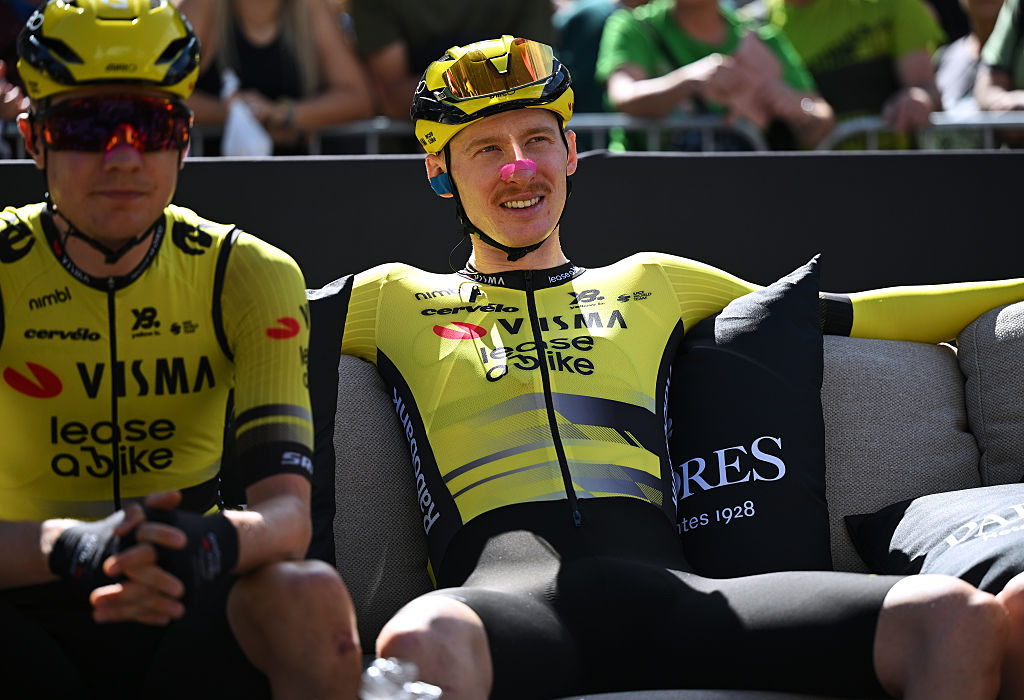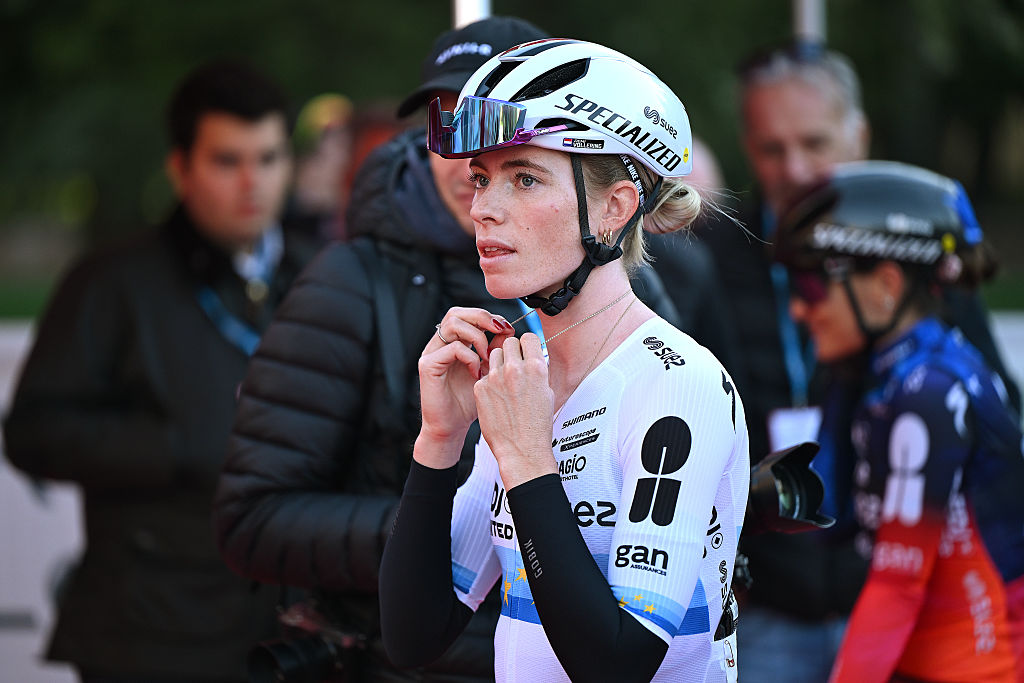'It's just a safer play' - Matteo Jorgenson dampens expectations of fireworks by Visma-Lease a Bike before second half of Vuelta a España
American confirms that Visma and leader Jonas Vingegaard waiting for second and third week to strike

The latest race content, interviews, features, reviews and expert buying guides, direct to your inbox!
You are now subscribed
Your newsletter sign-up was successful
Matteo Jorgenson has confirmed that the notably conservative stance taken by Visma-Lease a Bike on the major climbs of the Vuelta a España boils down to the team opting to take a 'classic' approach to Jonas Vingegaard's bid to become Denmark's first-ever winner of the Spanish Grand Tour.
Vingegaard did take an early stage win in an uphill dash for the line at Limone Piemonte, and finished third the following day at Ceres, and he has already twice held the lead in the Vuelta. But on neither occasion did Vingegaard need to deploy a full-scale assault by his team on the leader's jersey.
Furthermore, while his victory at Limone Piemonte was on a Cat. 2 climb, rather than a long-distance solo attack, he did not even think taking the win was feasible until he was very close to the line. Then at Ceres, although taking third in a sprint against David Gaudu (Groupama-FDJ) and Mads Pedersen (Lidl-Trek) was a reminder of his versatility, Vingegaard said afterwards he did not think he was ever in a position to clinch the victory.
While the team obviously pushed themselves hard in the team time trial, coming a narrowly defeated second to UAE Team Emirates-XRG, since then, Visma's role has been more muted, with non-GC threat Torstein Træen (Bahrain Victorious) being allowed to stay ahead to take the lead on stage 6, and Vingegaard mainly following wheels rather than attacking on the two Pyrenean summit finishes.
This stands in stark contrast to Visma's ultra-active strategy in the first week of the Tour de France, or even to 2023 in the Vuelta a España, where the squad fired Sepp Kuss up the road on the stage to Javalambre, forcing their rivals to chase.
Instead of putting riders in breakaways or having Vingegaard put the hammer down in the mountains, Jorgenson explained at the stage 7 start, the idea is to stay within their limits for as long as possible prior to the much tougher last two-thirds of the Vuelta.
"I guess in the Tour we were some of the actors of chaos, but I think we've approached this first week in a really calm manner and allowed the bike racing to happen," Jorgenson said.
The latest race content, interviews, features, reviews and expert buying guides, direct to your inbox!
"I think in the second and third week, we'll have a bit of a different strategy."
Asked if the decision to let the Vuelta develop without trying to control it too much had to do with the race being a more unpredictable kind of competition, Jorgenson said it wasn't necessarily the case.
"I don't know, I haven't looked that far ahead, but I think the team can be confident that if we save our energy in this first week and get through to the real big mountain days, then we'll have a better chance," he explained. "It's just a safer play for us."
Jorgenson was still with his previous squad, Movistar, when Visma last won the Vuelta, back in 2023, when Sepp Kuss, Vingegaard and Primož Roglič scooped the top three spots overall. But he has raced with Vingegaard in both of his last Tours de France, giving the American a ring-side seat into how his team leader handles Grand Tour racing.
As Jorgenson explained it, the Dane's ultra-consistent track record in July, combined with the drop in pressure at the Spanish Grand Tour, made for a great combination when it came to battling for the Vuelta.
"He's doing really well," Jorgenson said. "For everyone, if you do the Tour de France, it's a huge build-up and the year is structured around it, so you have a lot of extras, let's say, with media and training camps, and all this stuff creates a huge build-up in your brain and body.
"Then, when you get to that race itself, you have a lot of nerves and anxiety. There's just a lot of pressure, especially on Jonas – he's won it [the Tour] twice.
"So when you come to the Vuelta after having done that, you feel that inner confidence that if you've done well at the Tour, you're going to pretty much do well anywhere. It just feels a lot more natural, and he seems really calm and ready to take it on."
Probably the key factor in all of this, in any case, is that rather than being the underdogs as they were at the Tour, Visma are currently expected to be making the running in the Vuelta and as such are looking at the race in a long-term perspective. It's a strategy that is highly reminiscent of the 2021 Vuelta, in fact, where Roglič opened up the race with a powerful statement in the opening prologue at Burgos, but then only took a definitive lead overall on stage 17 at Covadonga.
This time round, too, it seems, Visma are content to play a waiting game - for now.
Subscribe to Cyclingnews for unlimited access to our 2025 Vuelta a España coverage. Our team of journalists are on the ground from the Italian Gran Partida through to Madrid, bringing you breaking news, analysis, and more, from every stage of the Grand Tour as it happens. Find out more.
Alasdair Fotheringham has been reporting on cycling since 1991. He has covered every Tour de France since 1992 bar one, as well as numerous other bike races of all shapes and sizes, ranging from the Olympic Games in 2008 to the now sadly defunct Subida a Urkiola hill climb in Spain. As well as working for Cyclingnews, he has also written for The Independent, The Guardian, ProCycling, The Express and Reuters.
You must confirm your public display name before commenting
Please logout and then login again, you will then be prompted to enter your display name.

